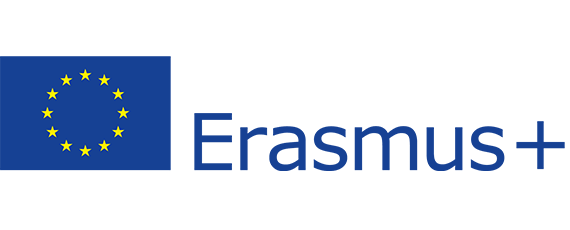(13.06.2017) The Vice President Dr Jochen Christe-Zeyse and the Head of the Senate Professor Dr Guido Fickenscher from the University of Applied Polices Sciences of the German State of Brandenburg paid a visit to the National Police Academy of the Israel Police in Beit Shemesh from 21 May until 25 May 2017.
Beit Shemesh is a city with a population of about 100,000. The modern city of Beit Shemesh was founded in 1950 and has been growing enormously. The number of inhabitants grew between 1995 and 2008 from 25,000 to 72,000, which means by 200 percent. The population of Beit Shemesh is expected to reach 150,000 in 2020. Beit Shemesh is more or less some kind of residential town without a typical city centre. Just a few shops and restaurants, and a shopping centre called BIG can be found there by tourists.
The entire police forces of the country were on higher alert during those days in May because of the state visit of the President of the United States at the same time. Most of the police forces that had to ensure a safe visit of Donald Trump to Israel were deployed in Jerusalem but accommodated in Beit Shemesh.
Here is the report about the visit to Israel:
Sunday 21/5: We received a warm and friendly welcome by our Erasmus+ partner from Israel at the airport after midnight. They took us then to the National Police Academy.
Monday 22/5: The day started for us with the pleasure of hearing an introductory lecture on the structure, responsibilities and duties of the police in Israel, explaining the locations of the headquarters and different departments, the police training in general and the most important policing activities. The basic police training in Israel lasts for four months. The police recruits in Israel are called “cadets”. After only two months of training, they already act as real officers. This includes carrying a gun. There are at the moment 3000 student officers at the National Police Academy. They participate in basic training seminars or in advanced postgraduate training courses. The instructors are in fact platoon commanders. Each of them is assisted by two sergeants. One platoon consists of 36 recruits. The instructor (platoon leader) of each platoon is not only responsible for the training success of every recruit; he also has to take care of the well-being of the individual. The platoon commander therefore provides sometimes assistance even in case of private problems that may affect the recruit’s professional conduct.
After the PowerPoint presentation that introduced us to the Israel police forces and to the National Police Academy in general, we enjoyed a guided tour on the campus. We saw the facilities for physical education, the pool, the fitness studio, the seminar rooms and lecture halls, the different laboratories, the dining hall and the indoor spa resorts. The spacious facility of the National Police academy was built only two and a half years ago. Everything meets the highest technical standard. We also had the chance to watch some of the practising drill exercises during our campus tour. The trainers showed us on the training field:
- How a suspected person can be arrested quickly within a hostile environment. This is practised to give bystanders or residents no time to intervene and to disturb the police operation,
- How to crush down an offender that the person is unable to hurt the officer by a firearm or knife.
- How the police officer by Krav Maga minimizes the distance to the attacker to avoid the criminal using a knife,
- How to eliminate a stronger assailant by targeting the most sensitive points of the human body, a fighting technique called Krav Maga.
We were invited then by the head trainer of the practising drill unit to see the entire training area. The National Police Academy made the decision some time ago to outsource the entire practising drill part of the police education to a private company under a 25 years contract. This also includes the self-defence-training and the shooting exercise training. The entire personnel for the company are civilians. These are in many cases retired soldiers or police officers. There are CCTVs installed in all of the facilities that can be used for post-training evaluation of the recruit’s action. A 180 degree screen displays different scenarios for action, often produced only for this purpose in the United States. Recruits can shoot at the screen by using a laser gun with a CO2 cartridge, which helps to simulate recoil. Hits can be seen immediately. The software for these exercising scenarios makes it possible for the shooting trainer to display different kinds of scenarios on the screen, showing the different behaviour of a suspect in a shooting-non-shooting-situation.
The National Police Academy has meanwhile purchased video clips that were shot on real places in Israel, this means inside towns of Israel. They are used in addition to the video clips from the US, which were not changed at all, just synchronised for Israel. It is technically possible to copy into these plays actors from the police academy. Self-defence is usually practised by using the duty pistol, the Taser or Krav Maga. Israel has had to suffer a high number of knife attacks by terrorists in recent years. This is why the different training scenarios put a highest effort into stopping knife attacks.
Another exciting event on our campus tour was the visit of the Forensic Department. A very experienced and professionally acting criminal investigator informed us about different procedures and methods the police students have to be familiar with. We talked about the interaction between the uniformed and the criminal police and of course about the cooperation with the states prosecutor. We also had an exchange of opinions on latest technical devises for criminal investigations and about the necessity to make the uniformed police aware of the necessity of high quality criminal investigations on the scene. It can be stated that methods and assignments of criminal investigations are quite comparable between Germany and Israel.
The German visitors became deeply moved when they visited the Police museum of Israel on the same day. There is a wall to see with steles to remember all police officers of Israel who have been killed in action since the state of Israel was founded. There are several hundred names listed on. We became very sad when we saw this and we understood deeply what it means to be a police officer in Israel.
Tuesday 23/5.: The head of the Regulations and Training Department outlined the advanced training programme to us in its structure in the morning. We shared our own experience with him. From lunchtime on, we were then joined by the German police-attaché. He talked about the new challenges for policing in times of terrorist threats and about his commitment to the Senior Commander Course, the necessity to maintain a cross-border-exchange and the necessity of a close cooperation between the nations. We visited the head of the Senior Commander Course in the afternoon.
Fifty officers of the senior level of command of the Senior Commander Course listened when Professor Dr Guido Fickenscher talked about the legal framework for police interaction in Germany and referred to cases that were of the interest of the people in Israel like knife attacks, terror plots and shooting sprees. Dr Jochen Christe-Zeyse placed emphasis on the challenges for leadership in a changing world: Organisational culture, “sensemaking” according to Weick, the policy of an organisation and the challenges on a kind of a leadership that is accepted in action and can be applied in every day work.
Wednesday 24/5.: Wednesday was the day for an exchange of the Erasmus+-partners on a number of topics: The conditions for police work in Israel and the consequences for police training and advanced training, the obvious discrepancy between the duration of a police training in Israel (four months) and in Germany (two and a half years or three years); about the different curricula, the ethos of being an officer, new concepts and development for police training, the many different biographies of individuals who would like to become police officers in Germany and in Israel, the interest of the young generation and lasting trends for police training and advanced training.
The delegation from the German state of Brandenburg was invited to an official dinner that day as well. We were joined not just by the welcoming officers of the National Police Academy, running our visit, but also by the officers who had been to the University of Applied Police Sciences in Oranienburg two weeks before our visit in Israel took place. Of course, we talked again about police routines in Israel and in Germany, about our bachelor police study programme as an “entry”-qualification to become a beat officer, and about the present security situation in Israel, the threats of terrorism, and the latest challenges in Germany, in Berlin in particular, in Europe and Israel.
Thursday 25/5.: We visited Jerusalem in the morning. First we went to Yad Vashem. We became really emotional and talked about the past of our people, about the reasons for the holocaust and about the lessons for the future to learn from it. The guided tour gave us a lot to think about. Later, we saw the old city centre, the Church of the Holy Sepulchre and the Wailing Wall.
After the sightseeing we had to say good bye to our hosts and to our driver (who did a great job in very dense traffic) and thanked them all a lot with warm words for this extra ordinary week for us. It was interesting and informative and useful in every respect.
J. Christe-Zeyse







